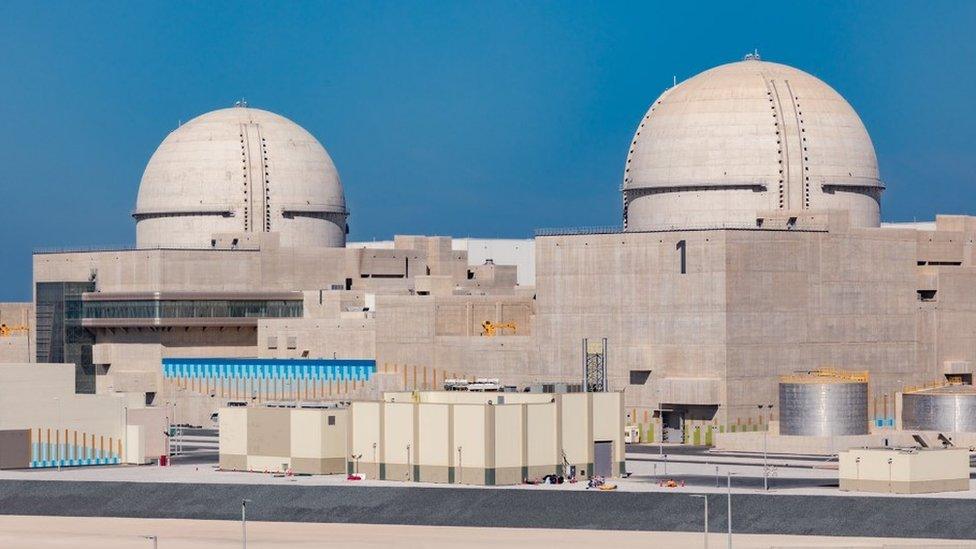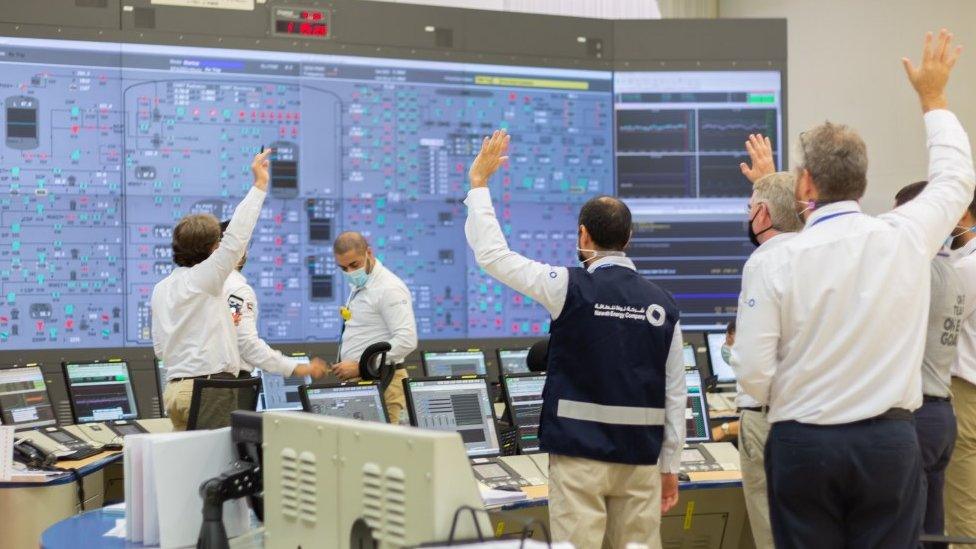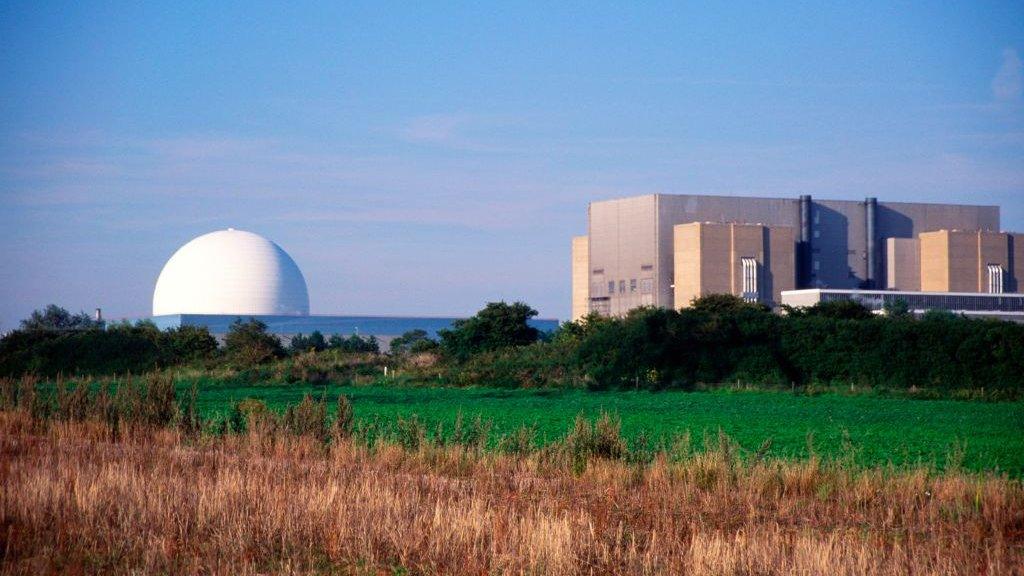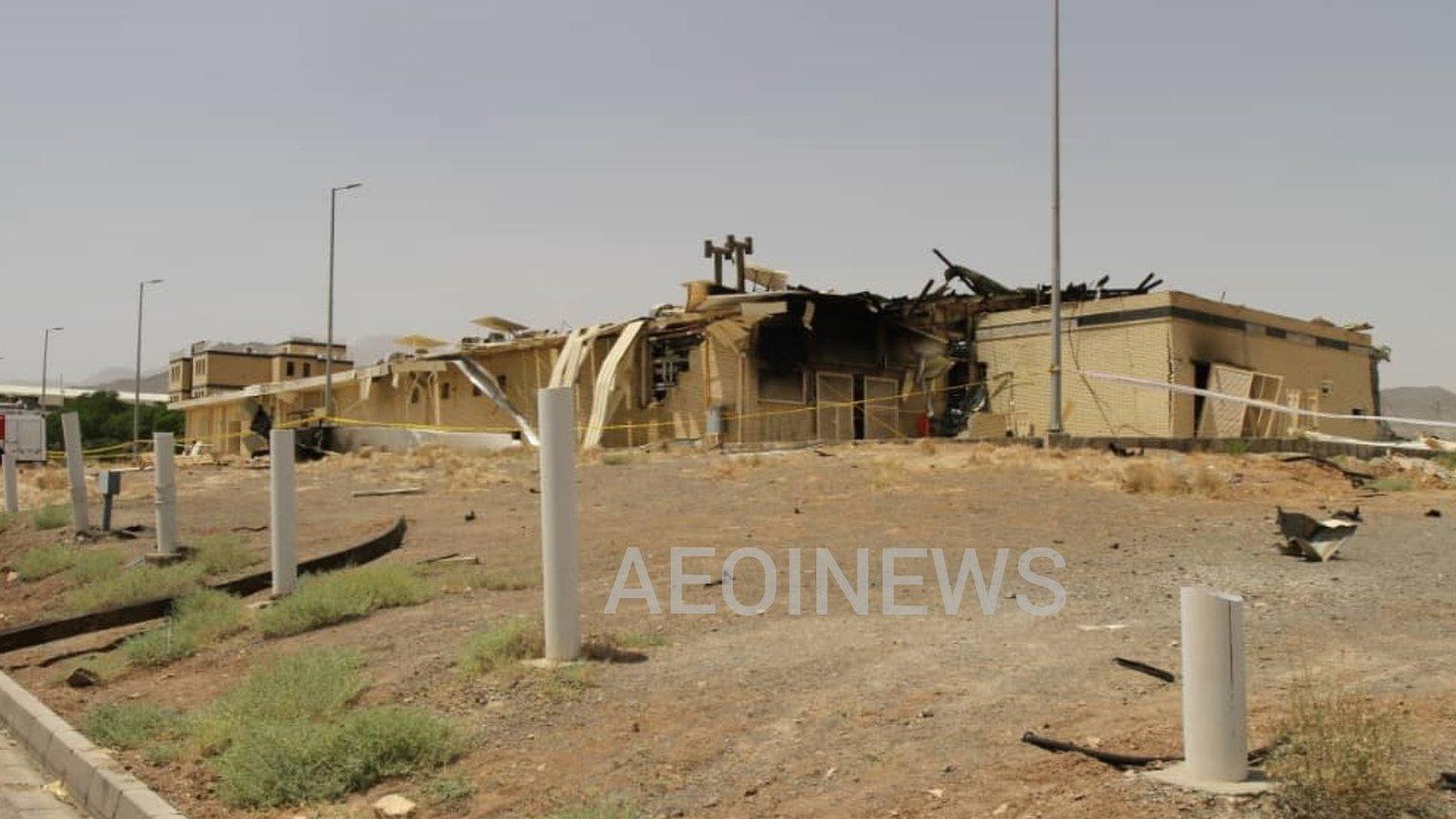Barakah: UAE starts up Arab world's first nuclear plant
- Published

Barakah: The start-up was originally scheduled to happen in 2017
The United Arab Emirates has launched operations at the Arab world's first nuclear power plant, on the Gulf coast just east of Qatar.
Nuclear fission has begun in one of four reactors at the Barakah plant, which uses South Korean technology.
The plant was due to open in 2017 but start-up was delayed for what officials said were safety requirements.
The oil-rich UAE wants Barakah to meet a quarter of its energy needs, as it adopts more sustainable energy sources.
Just two weeks ago the UAE sent a probe on a mission to Mars - another high-profile scientific first for the Gulf nation.
The UAE is also investing heavily in solar power - a plentiful energy source in the Gulf. Some energy experts question the logic of Barakah, arguing that solar power is cleaner, cheaper and makes more sense in a region plagued by political tensions and terrorism.
Last year Qatar called the Barakah plant a "flagrant threat to regional peace and environment". Qatar is a bitter regional rival of the UAE and Saudi Arabia.

Across the Gulf lies Iran, hostile to the UAE, and subject to US sanctions because of its controversial nuclear programme.
Dr Paul Dorfman, head of the international Nuclear Consulting Group, wrote last year that "the tense geopolitical environment in the Gulf makes nuclear a more controversial issue in this region than elsewhere, as new nuclear power provides the capability to develop and make nuclear weapons".
The London-based scientist also highlighted the risk of radioactive pollution in the Gulf.
In a statement the plant's developer the Emirates Nuclear Energy Corporation (ENEC) said it was committed to the "highest standards of safety and security" and that the plant would play an important role diversifying and decarbonising the economy.
"The Barakah plant will supply clean baseload electricity to the grid - complementing intermittent renewable sources of energy such as solar and wind, which are not able to generate electricity on a continuous basis," it said.
"It will provide up to 25% of the UAE's electricity needs once fully operational and will help prevent the release of 21 million tons of carbon emissions, equivalent to removing 3.2 millions cars off the road annually."

This photo, tweeted by Crown Prince Mohammed bin Zayed al-Nahyan, shows staff shortly after start up
'Important milestone'
UAE leaders hailed the start-up on Saturday as a symbol of the country's scientific progress.
The Barakah plant was developed by ENEC and Korea Electric Power Corporation (KEPCO). Energy will be generated by 1,400-megawatt pressurised water reactors, designed in South Korea, called APR-1400.
The International Atomic Energy Agency (IAEA) - the nuclear industry's main oversight body - praised Barakah in a tweet, external, saying the plant's Unit 1 had "achieved its first criticality" - that is, generation of a controlled fission chain reaction.
"This is an important milestone towards commercial operations and generating clean energy. IAEA has been supporting [United Arab Emirates] from the beginning of its nuclear power programme."
The leader of Abu Dhabi, Crown Prince Mohammed bin Zayed al-Nahyan, tweeted his congratulations, external "marking this milestone in the roadmap for sustainable development".
CORRECTION, 2 August 2020: This version has been updated to add a statement from the ENEC
- Published17 January 2019

- Published5 July 2020
